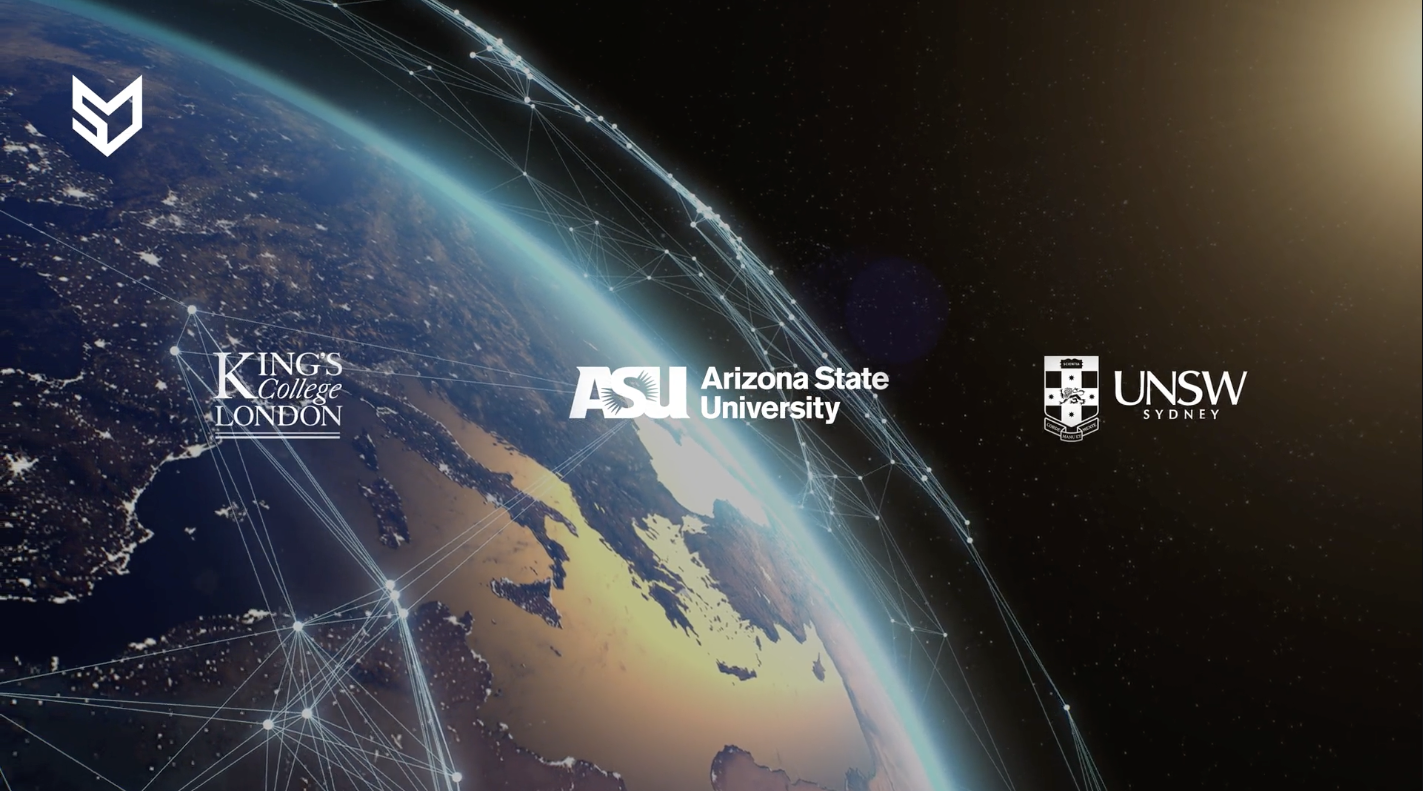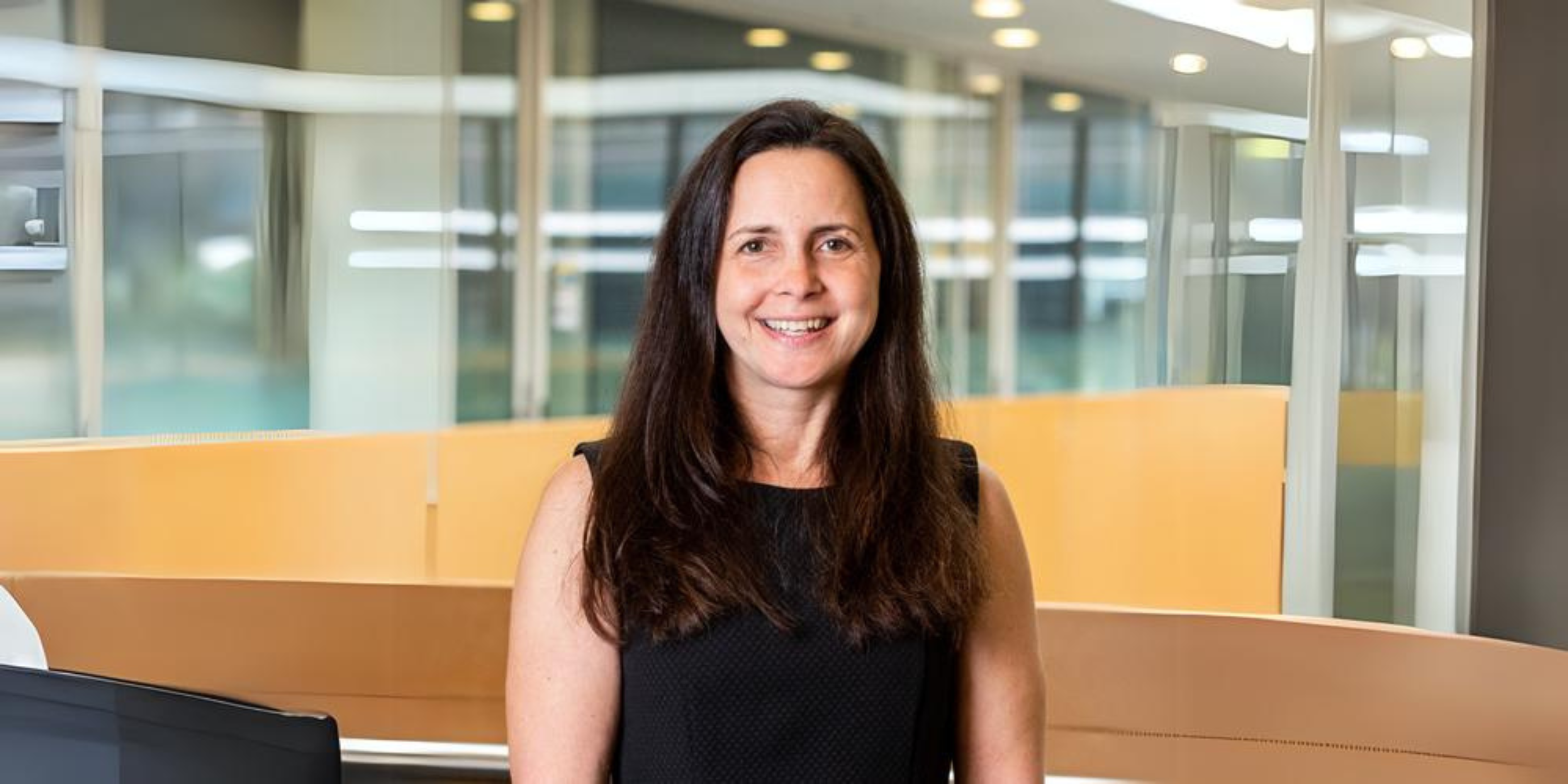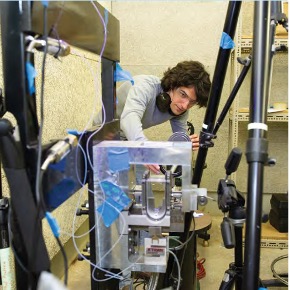There's an entire skillset (information literacy as well as digital literacy) that needs to be developed by novice Internet users. The International Telecommunication Union (ITU) recommends that such skills are taught in schools, but with over 95% of schools without Internet access around the world, teachers in these schools don't have the relevant skills. So how does 50% of the world’s population who are not online gain access to the vast expanse of information that the internet holds?
Dr Laura Hosman, Associate Professor, School for the Future of Innovation in Society at Arizona State University winner of the 2017 PLuS Alliance Prize in Education Innovation for the Solar Powered Educational Learning Library (SolarSPELL) has responded to this challenge. She was invited to discuss her innovative research and world changing technology at UNSW earlier this month. Her research focuses on the role of information and communications technology (ICT) in developing countries, particularly in terms of its potential effects on socio-cultural factors, human development, and economic growth.
SolarSPELL is a solar-powered educational learning library designed to deliver curated content to remote, unconnected or off-grid regions. This portable solar-powered digital library broadcasts over a Wi-Fi hotspot, transforming access to educational opportunities in the most resource-constrained conditions. It bypasses the infrastructural requirements and costs associated with providing both electricity and Internet connectivity. Through the SolarSPELL initiative, teachers, health care providers and Peace Corp volunteers are trained in its use to help others develop the relevant Internet-ready skillset.
On winning the PLuS Alliance Education Innovation Prize of $25,000 Dr Hosman commented “It’s certainly been helpful to be able to mention this award when talking about SolarSPELL! I invested the prize funds right back into the SolarSPELL initiative. I would say that this allowed me to bring more students to the field as a part of the project work, which is a priority for me.”
Following her recent lecture at UNSW, “On the brink of the internet” Bisi Olulode (BO), Communications Officer asked Dr Hosman (LH) what was the inspiration for SolarSPELL?
LH - Although the first SolarSPELLs went to the field in 2015, the idea for an offline, rugged, solar-powered digital library developed and evolved from lessons learned from being out in the field and seeing what the true challenges were for teachers and students, from about 2010-2015. I originally had wanted to see why so many “technology in schools” projects around the world weren’t successful. I gained quite a bit of insight from going into the field and talking with teachers about this, and I learned a lot. But I found that I was learning even more by trying to help address some of the challenges these teachers had told me about.
BO – How did you get your students involved?
LH - I started teaching team-based, project-focused classes that were designed to be very hands-on. I was able to involve my students in this work from the very beginning. In about 2010, I first began presenting my students with a real-world challenge and incentivizing them by telling them “and we’re going to deliver what you’ve been working on this semester, to our partners in the field, at the end of the semester.” When we did this, there were always some aspects of what we were doing that were successful, and some that were failures. The SolarSPELL library is a result of learning from those failures.
BO – What was the biggest revelation during the development phase?
LH- It “takes a village” to develop a library! The technology and hardware must work, and so we had to get that part right, but that is just the first step. A library needs to have content that is useful, relevant, and interesting for the users. We’ll never be done improving it, because a library is never finished. We’re always looking to improve every aspect of the library, including the hardware, software, content, training we give to new library users, and impact evaluation.
BO - How many countries are using SolarSPELL and how many is that in students numbers?
LH - SolarSPELL is being used in 8 countries including Fiji, Rwanda, South Sudan and Tonga. It’s less straightforward to count how many students are using the library, because the library is offline and is designed to be completely free to use the open access materials. We’ve estimated that SolarSPELL has reached between 10,000 – 20,000 students.
BO - What are the plans for SolarSPELL?
LH - To continue expanding around the world. There are three main areas of emphasis over the next few years:
• Launching SolarSPELL Health this year (a health-focused version of the library) that can be used by health practitioners in offline locations
• Launching SolarSPELL in refugee camps and settlements in East Africa, with a goal of introducing it in refugee situations around the world.
• To continue working with US Peace Corps volunteers and expanding our work with the Peace Corps around the world.
BO - What role can SolarSPELL play in addressing global health issues?
LH - SolarSPELL Health will be our first standalone health-focused library initially in South Sudan, where we’ll be creating a library that can be used by educational institutions, meeting their curricular needs. This is extremely important for a country where both electricity and Internet connectivity are so expensive and, thus, rare. Textbooks, medical guidelines, and other learning materials are extremely limited, so having access to these materials, freely available on one’s smartphone (downloaded from the SolarSPELL library), can be a game-changer.
In addition to developing a library for teaching institutions, we’re creating an animated video series that conveys messages about basic health topics that have nearly universal applicability but will be in the local languages. Having access to information like this, offline, has the potential to address the health-information needs of local clinicians around the world, and bring potentially lifesaving knowledge to remote, low-resource locations.
I hope to be able to expand SolarSPELL’s reach by working together with those at UNSW and KCL. There are so many people around the world who still lack access to information, there’s really no shortage of demand for this! There is no end of possibilities for how many places SolarSPELL could be used.
BO - Fiji are shortly due to introduce a climate change act. Fiji’s attorney general and minister for economy and climate change, Aiyaz Sayed-Khaiyum, called global heating “a fight for our lives and our livelihoods”. The act will include tighter restrictions on the use of plastics, a framework for Fiji to reduce its emissions to net-zero by 2050, and the establishment of procedures for the relocation of communities at risk from the adverse effects of the climate crisis. What role do you see for SolarSPELL in educating on the effects of climate change and actions to prevent its escalation?
LH - Fiji is such a global leader in raising awareness of climate change and acting on it, it shouldn’t come as a surprise that we were specifically asked to add climate change-focused content to the SolarSPELL to bring to Fiji. The SolarSPELL team has worked very hard to find, as well as to create, content that addresses climate change-related topics that are specifically relevant for Fiji and for the Pacific Islands, because once we’ve piloted this content in Fiji, we plan to bring it to additional Pacific Island nations.
With the training we’ll be holding this week in Fiji, we’ll be introducing this new and improved content, which has a strong emphasis on climate change awareness, mitigation, and adaptation. We’ll also be developing the skillset of local teachers and librarians, to teach and share about these topics in a hands-on, action-oriented way that can involve the entire community.
I believe that education is at the heart of improving people’s quality of life. When people gain access to quality, relevant, useful information, they can gain the power to define their own development goals and achieve them.
Follow the @PLuSAlliance on Twitter and @PLuSAllianceedu on Instagram. For queries contact Bisi Olulode, Communications Officer [email protected]


